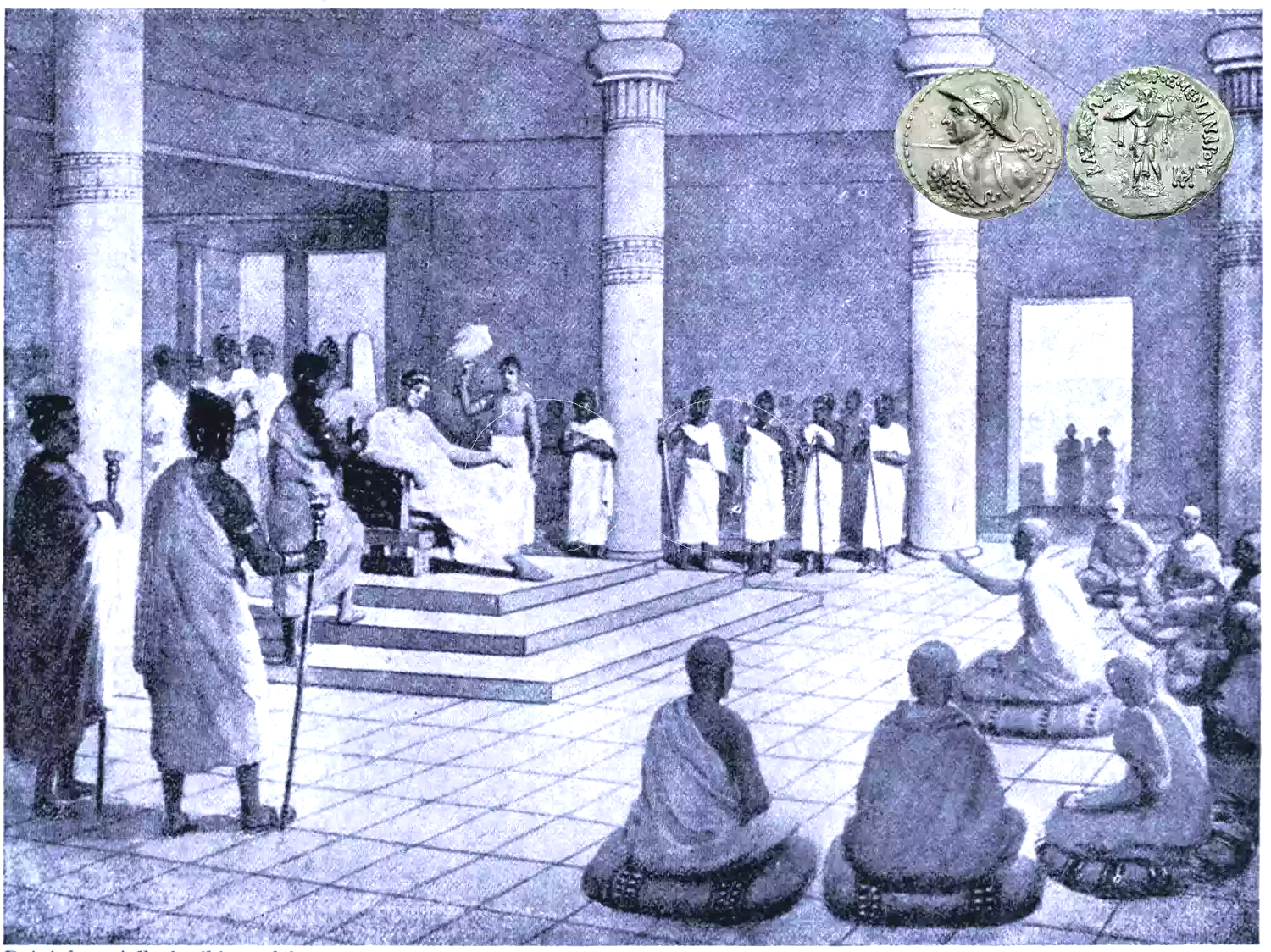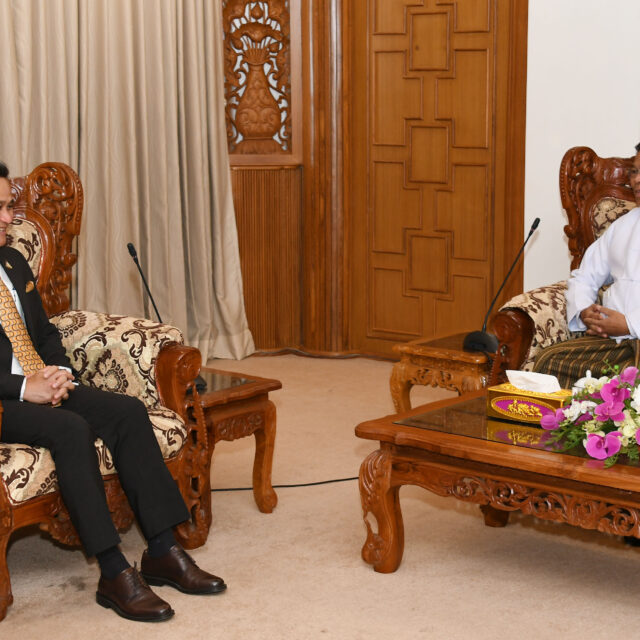By Myint Zan
After-life as depicted in Plato’s Phaedo
The English translation of The Last Days of Socrates from ancient Greek was done by among others classicists Benjamin Jowett and Hugh Tredennick. The translation contains four ‘Chapters’: Euthrypo, Apology, Crito and Phaedo. The longest among the four is Phaedo. In the 1960s the late Burmese poet and scholar Saya (‘teacher’) Zawgyi translated parts of Apology, the full narration of Crito and only a very small part of the long and turgid Phaedo into Burmese.
In the Phaedo originally written by Plato is about the long conversations Socrates had with his disciples on the day of his execution. Socrates discoursed largely about the after-life which he was so confident that he would ‘transmigrate’ to after he drank the hemlock. Saya (teacher) Zawgyi translated into Burmese a select few of Plato’s Dialogues from the English translations mainly those done by Benjamin Jowett. As Saya himself disarmingly and (in the positive sense of the words) mischievously wrote in his Preface to Palay Toe Needan ‘Introduction to Plato’ should he (Zawgyi) have attempted to translate from the ancient Greek the translations could have been considerably delayed! Zawgyi did not translate the ‘tract’ or treatise Euthrypo which, in my opinion, is the most philosophical among the four treatises that constitute The Last Day of Socrates. Zawgyi did translate (from the English translation) only about the last 1,500 words of Phaedo and in one of the republished editions of Pala Toe Needan the concluding segment of (as stated above around 1,500 words) the Phaedo, as translated into English by Benjamin Jowett is reproduced.
At the end of Chapter Euthyphro, the person stated that he could not answer Socrates’ questions and ‘cut him off’ saying he had somewhere to go. Plato ended the dialogue between Socrates and Euthyphro inconclusively since the problematique Socrates had raised ‘whether certain actions and conduct are considered pious because the (ancient Athenian) gods love them or the Athenian gods love them because they are pious’ was not resolved.
As stated in the Phaedo, Socrates and Plato’s beliefs in the afterlife (or the underworld) Socrates ostensibly or arguably is still having endless ‘philosophical discourse’ with his fellow philosophers that came before and after his earthly sojourn. But some of his ‘successors’ like, say, philosophers David Hume in the 18th century and Bertrand Russell in the 20th did not believe in any form of after-life so perhaps they would not be among the philosophical ‘mates’ discoursing with Socrates.
In the Phaedo after Socrates’ execution Phaedo the person was requested by Socrates’s disciples to narrate to them about Socrates’ last day on Earth “if you (Phaedo) have the time”. Phaedo replied that he had ‘lots of time’ to narrate about the discourse Socrates made to his disciples. Reading the long discourse in the Phaedo I wish that Phaedo (like Euthyphro) did not have time and have ‘somewhere to go..’ so that we would be spared the turgid discourse of Socrates on the after-life.
Afterlife as depicted in the Buddhist text Milinda Panna
Briefly, Plato’s conception of the ‘after-life’ is very much different from the Theravada Buddhist concept of ‘rebirth’ based on the concept of (in transliterated Pali word) Anatta (non-self/no-soul). Plato’s Phaedo is at the least ‘non-Buddhistic’ and perhaps to use a polarized term almost ‘anti-Theravada Buddhist ‘ since it is contrary to the Anatta concept.
In the canonical Buddhist literature, there is no soul. As explained by the Buddhist monk Nagasena around 150 Before the Current Era (BCE) to King Milinda (Menander) in the text Milinda Panna (‘Discourses in the Milinda’) it is not the soul that transmigrates to the after-life but the karmic effects of one’s actions. Nagasena explained that when the flame from a lit lantern is taken to lit another lantern then just as the flame in the new lantern is not considered to be the ‘same flame’ it is also not a new ‘flame’. So unlike in the Phaedo if Socrates were to be reborn it is not the permanent soul of Socrates that is being ‘transmigrated’ to the afterlife but the new-but-not-new Socrates without a permanent soul which is being reborn.
The Milinda Panna is a series of dialogues between monk Nagasena and King Milinda on Buddhist philosophy and metaphysics. It was ostensibly composed around 150 Before the Current Era (BCE) in the Sanskrit language, later translated into Pali language (the lingua franca of Southeast Asian Buddhism) and in the early 20th century translated into English. Just as in the 1960s scholar Zawgyi translated a few Dialogues of Plato (from English translations) into Burmese also in the 1960s another Burmese scholar the late U Thaw Zin who was proficient in the Pali language translated from Pali into Burmese a select few excerpts from the Milinda Panha.
Plato’s Dialogues preceded the discourses and the dialogue in the Milinda Panna by about 400 years. It is said that King Milinda/Menander was of Greek origin or ‘extraction’. He ruled Bactra parts of what can be considered present-day Afghanistan. One does not know whether Milinda/Menander could read or write (ancient) Greek language but was perhaps unlikely that either the adept king Menander or the erudite monk Nagasena were aware of the existence not to say the contents of Plato’s Phaedo.
The simple statement concerning no before or after-life of the Rationalist Society of Australia
The after-life or after-lives (in the case of Buddhist texts) is/are taken as a premise indeed an axiom in the Phaedo and Milinda Panna albeit the modes of rebirth, reincarnation, ‘transmigration’ as the case may be depicted in the two texts are radically different.
Fast forward from Plato’s time around 2,300 years ago and Nagasena/Minander’s time of around 1,900 years ago to the early 21st century. One of the mottos or announcements of the Rationalist Society of Australia is that there is no ‘before-life’ and ‘after-life’. If mirabile dictu or ex hypothesi Plato/Socrates or Nagasena were to ‘come back’ would they debate with each other about the nature of the after-life? Would both of these great ancient, philosophical personages who flourished roughly four centuries apart reject, in their own ways, the simple postulate, the assertion (okay ‘statement’) of the Rationalist Society of Australia that there is no ‘before-life’ or ‘after-life’ as ‘simplistic’?
Dr Myint Zan is a retired Professor of Law. He taught, among other subjects, Jurisprudence (Legal Philosophy) at Multimedia University, Malacca from 2007 to 2016. He established a Myint Zan Fellowship in Philosophy for Early Career Researchers at The Australia National University (ANU) for the years 2018 to 2022 and a Myint Zan prize in the Philosophy of Science in perpetuity for undergraduate ANU philosophy students.















